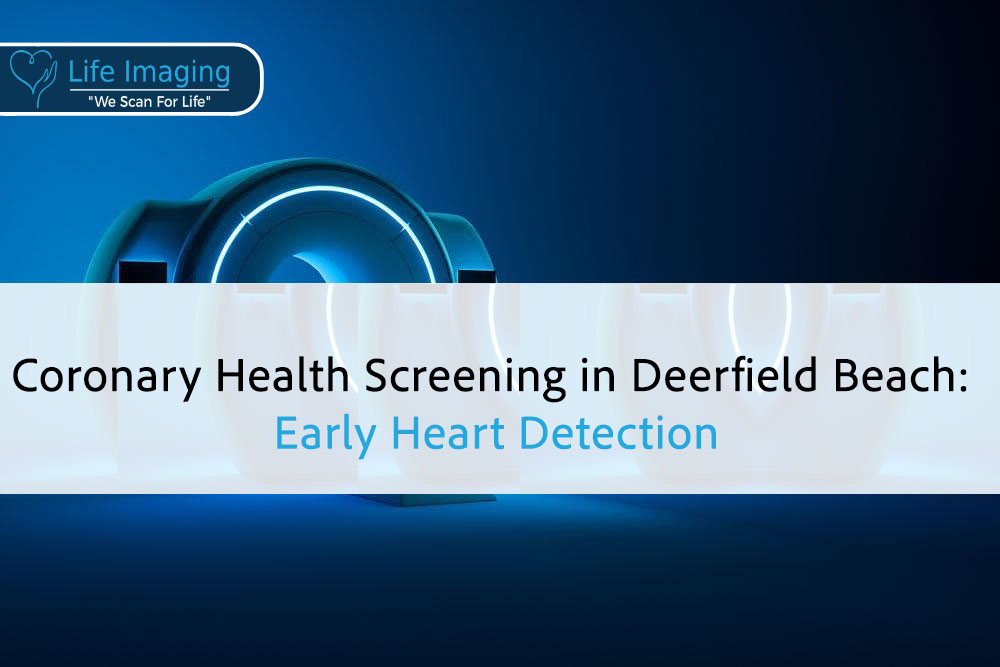
Fast and Painless Cancer Scan: What It Really Means (and What to Consider)
Fast and Painless Cancer Scan: What It Really Means (and

Prostate cancer is one of the most common types of cancer among men. Early detection can make a significant difference in treatment outcomes and survival rates. Knowing the methods available for detecting prostate cancer is essential for making informed decisions about your health. This article explores various detection methods and provides useful information to help you understand each one.
Understanding the different ways prostate cancer can be detected can empower you to take control of your health. From simple blood tests to advanced imaging techniques, each method offers unique benefits and insights. Taking the time to learn about these methods can help you and your doctor choose the best approach for your situation.
Having a clear plan for prostate cancer detection is vital. It ensures that any signs of cancer are caught early, making treatment more effective. By being proactive and knowledgeable, you can increase your chances of a favorable outcome. We’ll walk you through the most effective prostate cancer detection methods, helping you to stay ahead in your health journey.
Prostate cancer develops in the prostate, a small gland that produces seminal fluid in men. It is one of the most common cancers in men and typically grows slowly. However, some forms can be aggressive and spread quickly.
Several factors can increase the risk of developing prostate cancer. Age is a significant factor, with most cases occurring in men over 50. Family history also plays a role; if a close relative has had prostate cancer, your risk increases. Additionally, certain genetic factors and ethnic backgrounds, such as being African American, can elevate risk levels.
Understanding these risks helps in making informed decisions about screening and early detection. By knowing the factors that contribute to prostate cancer, you can take proactive steps to monitor your health effectively.
Early detection of prostate cancer is vital because it significantly improves the chances of successful treatment. Catching cancer in its initial stages allows for more treatment options and increases the likelihood of a positive outcome.
Prostate cancer often shows no symptoms in the early stages, making regular screening essential. Early detection can prevent the spread of cancer to other parts of the body, which is more difficult to treat. This can lead to a longer, healthier life with fewer complications.
By staying on top of screening and understanding the importance of early detection, you put yourself in the best position to manage your health proactively. Regular check-ups and tests can help catch cancer early, making treatment more effective and improving your quality of life.
Knowing the common symptoms of prostate cancer can help you identify potential issues early. However, keep in mind that early stages often have no symptoms, highlighting the importance of regular screening. Here are some symptoms to watch for:
If you experience any of these symptoms, consult with a healthcare provider promptly. Early detection and diagnosis are key to effective treatment.
A PSA (Prostate-Specific Antigen) test is a blood test that measures the level of PSA in your blood. PSA is a protein produced by both normal and cancerous prostate cells. Elevated levels can indicate prostate cancer or other prostate conditions.
The PSA test is simple and non-invasive. Your doctor will take a small blood sample and send it to a lab for analysis. Results typically show the amount of PSA in your blood, with higher levels suggesting a potential problem.
PSA tests are valuable for early detection, especially for men at higher risk. However, elevated PSA levels do not always mean cancer, as other conditions like prostatitis or an enlarged prostate can also raise PSA levels. Discussing the results with your doctor helps determine the next steps, which may include further testing or monitoring.
Digital Rectal Exams (DRE) are a key method for detecting prostate cancer. During a DRE, a doctor inserts a gloved, lubricated finger into the rectum to feel the prostate gland. This exam helps identify abnormalities in the prostate, such as lumps or hard areas that might indicate cancer.
DREs are usually quick and can be done during a routine check-up. While it might be uncomfortable, it is not typically painful. The exam allows the doctor to assess the size, texture, and shape of the prostate, which can reveal important clues about your prostate health.
Although the DRE alone can’t diagnose prostate cancer, it is a valuable tool in combination with other tests like the PSA test. If any abnormalities are found during a DRE, your doctor may recommend further testing to get more information about your prostate health. This simple exam can be crucial for early detection and timely treatment.
Advanced imaging techniques play a significant role in detecting prostate cancer. These techniques provide detailed images of the prostate, helping doctors to identify abnormalities and assess the extent of the disease. Some common imaging methods include:
These imaging techniques are often used in conjunction with other tests to provide a complete picture of your prostate health. They are valuable tools for detecting cancer early, planning treatment, and monitoring the effectiveness of therapy.
A biopsy is a procedure where a small sample of prostate tissue is taken to be examined under a microscope. This is often the most definitive way to diagnose prostate cancer. There are different methods for performing a biopsy:
The tissue samples are then analyzed to determine if cancer cells are present and to what extent. Biopsies are critical for confirming a diagnosis of prostate cancer and understanding the aggressiveness of the tumor. This information is essential for planning the most effective treatment.
MRI scans are invaluable for assessing prostate health and detecting cancer. An MRI (Magnetic Resonance Imaging) uses powerful magnets and radio waves to create detailed images of the prostate and surrounding tissues. This imaging method provides clear pictures and can reveal abnormalities that other tests might miss.
One key advantage of MRI scans is their ability to differentiate between different types of tissue. They can help distinguish between benign (non-cancerous) and malignant (cancerous) areas within the prostate. This makes MRI particularly useful for identifying tumors and understanding their extent.
MRI scans can also be used to guide biopsies, ensuring that tissue samples are taken from the most suspicious areas. This increases the accuracy of the biopsy and helps in diagnosing prostate cancer more confidently. Additionally, MRI can be used to monitor the progress of the disease and the effectiveness of treatment, providing ongoing insights into your prostate health.
Ultrasound is a non-invasive imaging technique often used to detect prostate cancer. It provides clear images of the prostate gland and helps doctors identify any abnormalities.
Using ultrasound helps doctors make more accurate diagnoses and determine if further testing or treatment is necessary.
Genetic tests are becoming more important in the detection and understanding of prostate cancer. These tests look for specific gene changes that might increase the risk of developing cancer.
If you have a family history of prostate cancer or other cancers, discussing genetic testing with your doctor can be a proactive step in managing your health.
There are several methods for detecting prostate cancer, each with its own advantages and disadvantages. Understanding these can help you make informed decisions about your health.
Choosing the right detection method depends on your specific situation and should be discussed with your healthcare provider.
Preparation is key to ensure that prostate cancer tests go smoothly and produce accurate results. Here’s what you need to know:
Being prepared helps ensure the testing process is smooth and that results are as accurate as possible.
Detecting prostate cancer early is crucial for effective treatment and management. Utilizing different detection methods such as PSA tests, DRE, ultrasound, and genetic tests provides a comprehensive approach to identifying and understanding your prostate health. Preparing properly for each type of test ensures accurate results and a smoother experience.
Taking proactive steps, like understanding the range of available tests and knowing how to prepare, empowers you to take control of your health. Early detection and informed decision-making are keys to better health outcomes.
Take the first step toward proactive prostate cancer management by scheduling your screening in Orlando, FL, with Life Imaging Fla today. Early detection can save lives, so make your health a priority now!

Fast and Painless Cancer Scan: What It Really Means (and

Introduction Your heart works hard every second of the day,

Introduction Your heart works around the clock, but changes inside

Introduction Your heart works nonstop, often without a single complaint.

Introduction The best part of getting older is having time

Introduction Good health isn’t just about treating problems, it’s about

* Get your free heart scan by confirming a few minimum requirements.
Our team will verify that you qualify before your scan is booked.
Copyright © 2025 Life Imaging – All Rights Reserved